HOT SKULL – Season One
As an epidemic spreads through speech, a tyrannical government institution pursues the one man who seems immune to the disease.
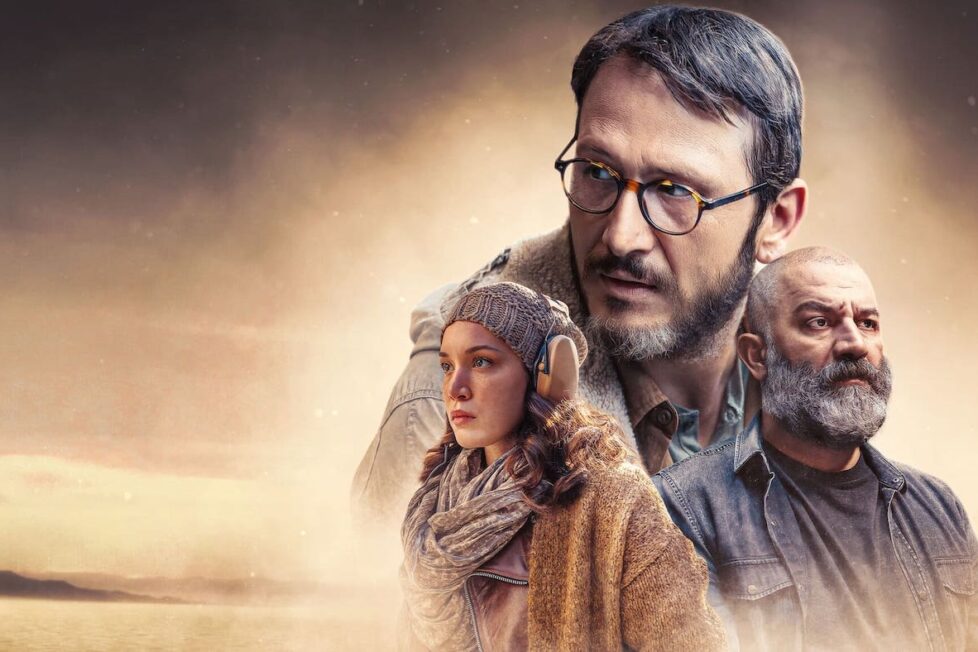
As an epidemic spreads through speech, a tyrannical government institution pursues the one man who seems immune to the disease.


Afşin Kum’s 2016 novel Sıcak Kafa hasn’t been translated into English at time of writing, so I don’t how faithful to the original this TV adaptation by Mert Baykal and his team might be. But Netflix Turkey announced production of the series on 10 March 2020, the day before the World Health Organisation (WHO) declared Coronavirus a pandemic, and it’s now impossible not to see it through COVID-aware eyes.
As one character says about the disease central to the show’s premise, “it struck us, out of the blue, that our reality could crumble into pieces just like that”. Sound familiar?
Moreover, not only does Hot Skull (an approximate translation of Sıcak Kafa) deal with a global outbreak of an infectious disease, it also portrays a government using the virus to control the population (a favourite notion of COVID conspiracy theorists); and the specific way in which this infection is transmitted can be read as a metaphor for the spread of misinformation during the pandemic years.
Given these two, apparently opposing perspectives—endorsing paranoia about government on a literal level, at the same time as suggesting that talking nonsense is itself a public health crisis—it’s probably best not to see Hot Skull as putting forward an argument about the pandemic as such (let alone an accurate picture of Turkey’s fairly relaxed response to it), but as a reflective satire.
Talking nonsense is the key to Hot Skull’s premise, in fact. The show begins (and remains) in Istanbul, some years into a pandemic which by implication is worldwide and involves a disease officially known as ARDS, but colloquially referred to as “jabbering”.
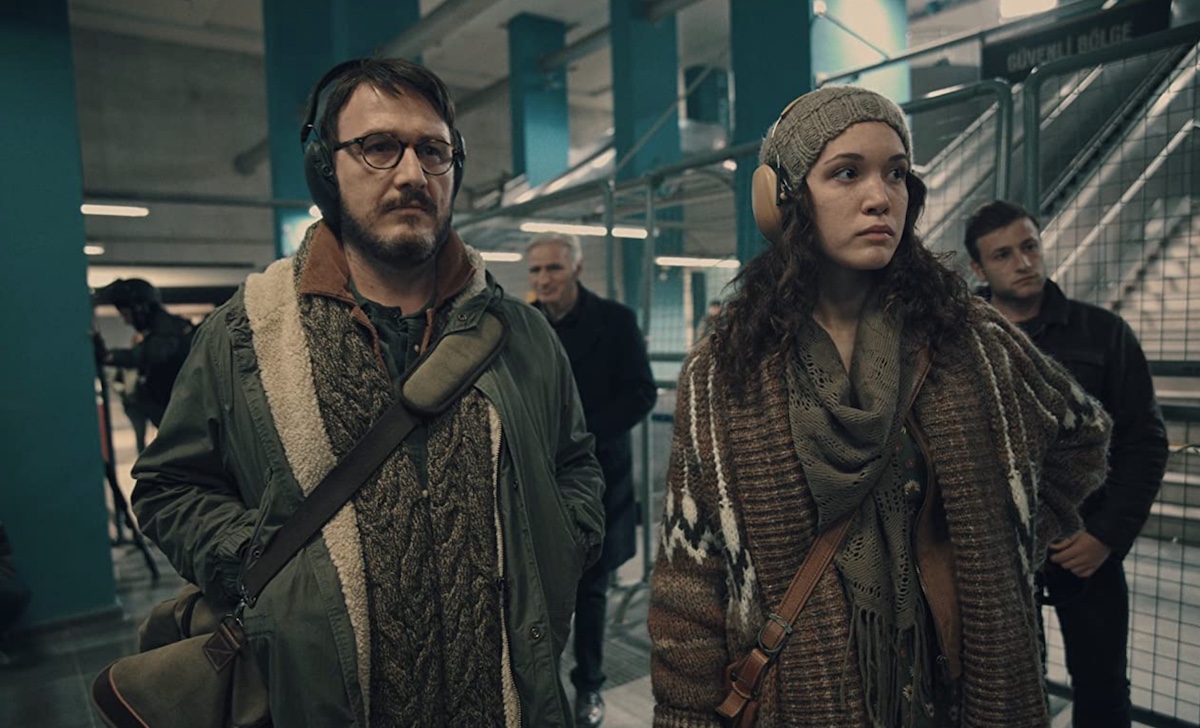
This is because the infected begin to babble prolifically, producing sentences that are grammatical and occasionally almost poetic… but more or less meaningless. “I hope you don’t sacrifice the instinct to friction to your massive matter” is one of the first examples given by the show. They aren’t mindless zombies because they seemingly retain the ability to perform some everyday tasks—eating, sleeping, moving around—together with a level of awareness. (Though one of the show’s weaker points is its vagueness of detail about ARDS). But they can no longer function in society.
The infected are incapable of making sense and, although presented primarily as victims rather than threats, they’re dangerous too, for those who even hear “jabbering” become infected themselves. As a consequence, when people leave their homes they don’t wear not face masks, but headphones to block out sounds.
One man, however, doesn’t need the headset he dons to blend in. That’s Murat (Osman Sonant), who appears to be immune from infection, although encountering a jabberer causes his brain to heat up. Murat is a former linguist with the SMK (AEI in the English subtitles but SMK on-screen, confusingly), a government body charged with handling the pandemic, which has accrued near-totalitarian powers while claiming all it’s doing is trying to manage and ultimately eliminate the disease. Indeed, he was involved with earlier SMK research into ARDS which went dramatically wrong; and now the organisation’s hunting him, perhaps because his immunity might hold the secret to a solution, but more likely because an actual cure would be a threat to their control of Turkish society.
Before long Murat makes contact with a resistance group called Plus One, via a young woman (Hazal Subasi) he meets at a bus stop. The group’s based in a zone of the city which the SMK has largely abandoned to the jabberers and the less affluent, has its own scientists seeking a cure, a militant arm called Hawk Wing, and is afflicted by its own internal disagreements. Hawk Wing’s members believe that a dramatic strike against the SMK’s tyrannical behaviour is necessary, while others maintain that will only encourage retaliation and a peaceful compromise can be sought. Again, there are clear echoes of many real-world debates.
As Murat tries to evade the SMK and decide whether to commit himself to Plus One—part of him recognises his moral responsibility to help their research into a cure, but another part of him simply wants to be rid of his own strange immunity and to become like everyone else again—Hot Skull convincingly portrays a discontented, fear-haunted, run-down world only a few steps away from our reality, and plausible enough once the premise is accepted. The first depiction of a jabberer, at a supermarket where panicked workers sound the alarm and pull down barriers as soon as they realise an infected person is in their midst, is particularly effective.
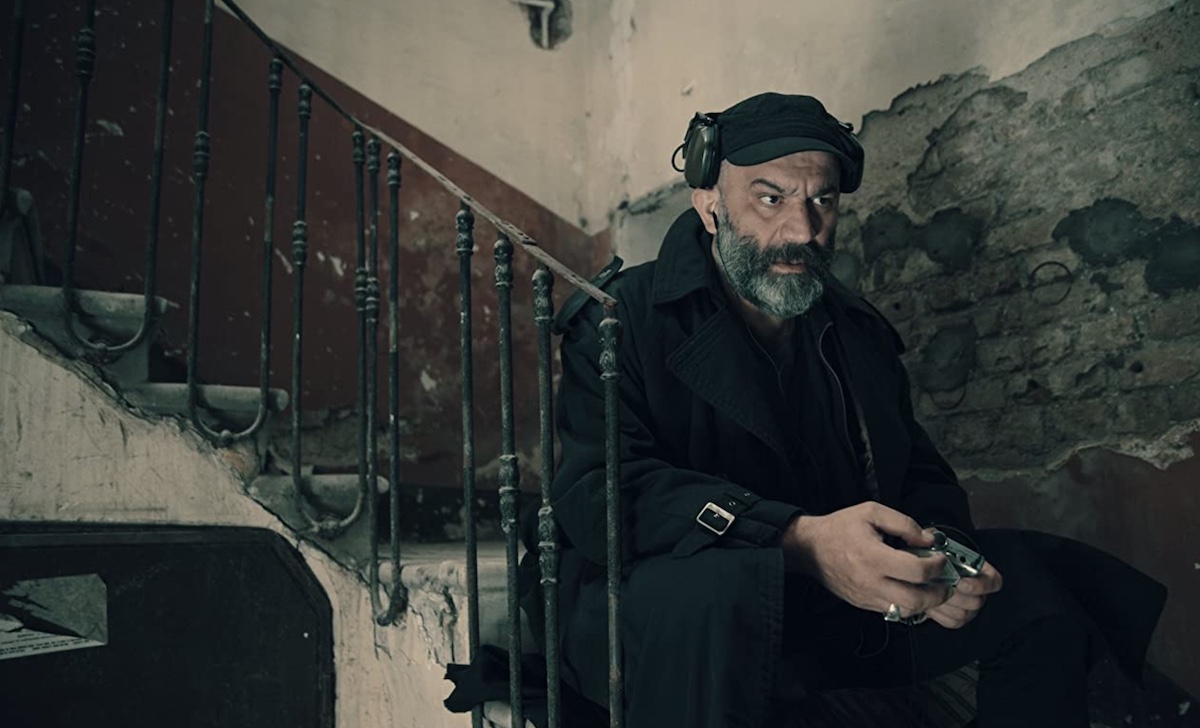
A handful of niggles aren’t enough to seriously detract from this. For example, it seems unlikely that years into the pandemic people would still be wearing what look like normal commercial audio headphones rather than specially-made ear protectors; and James Delingpole in The Spectator rightly questioned why they don’t use written language more to avoid the threat of overhearing a jabberer.
Hot Skull does sometimes leave details irksomely sketchy—not least concerning the disease itself. Why does a rare “high-level” jabberer, Haluk (Haluk Bilginer), hardly speak at all and yet so easily infect people with just a few words when he does? What exactly is going on with Behzat (Yetkin Dikinciler), who seems to suffer from a kind of vocal dementia distinct from the jabbering disease?
Compounding this, the narrative can be slow, spending time going round in circles that might be better spent on moving ahead or onto richer world-building. Moments of physical comedy, dream sequences, and the rather surreal figure of Özgür (Özgür Emre Yildirim)—a renegade scientist sought by Murat—don’t fit very happily into the gritty realism, either.
The series has mixed success with other characters. Fazil (Kubilay Tunçer) is almost cartoonishly evil as a senior SMK official and the de facto villain of the piece, while Murat himself (oddly reminiscent of Álvaro Morte’s Professor in Netflix’s Spanish Money Heist) is difficult to fully understand and not quite likeable, in part because of his dithering over how far to support Plus One. We don’t see enough of his brain-heating episodes to know whether they’re really unbearable, or whether he’s simply being selfish when he insists he wants a cure for his own condition rather than contributing to a cure for the pandemic that affects everyone else.
More sympathetic and at times almost as prominent in the storyline is Anton (Sevket Çoruh), an SMK operative with a pandemic-related secret of his own, while Subasi as the committed Plus One activist Sule and Tilbe Saran as Murat’s much less political mother are both convincing. Also standing out is Mensur Safqiu, playing a doctor working with the resistance.
Hot Skull’s premise isn’t totally original because Bruce McDonald’s Canadian film Pontypool (2008) and its source novel by Tony Burgess proposed a similar mechanism of infection-by-language—in their case alluding to the linguistically-based divisions of eastern Canada—but it’s fresh enough to carry audiences a long way.
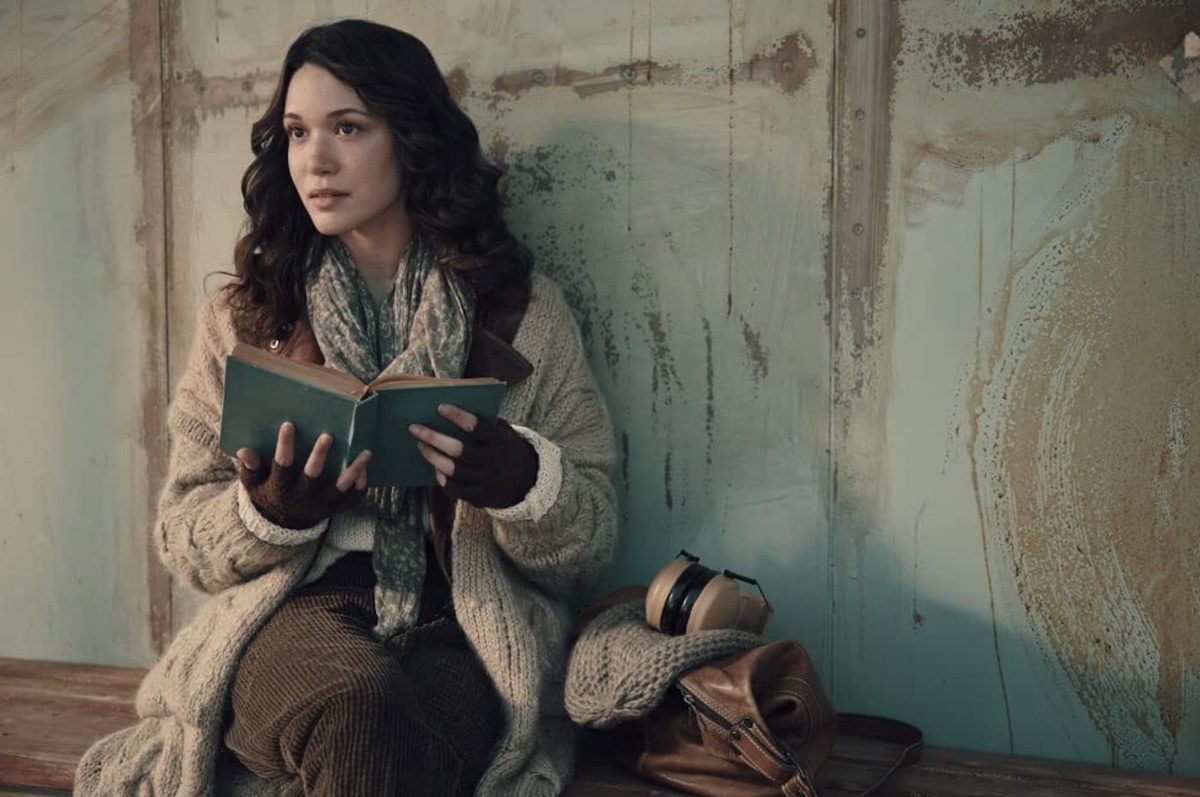
At times the idea is developed poignantly—infected children seem to jabber only about childish concerns, for example, and adult jabberers often seem hauntingly on the verge of making sense, but not quite getting there. (Another allusion to online misinformation and misunderstanding, perhaps, and to crumbling reality?)
But at other times the series is overtly poetic, like in its use of flowers to symbolise hope. Along with mostly persuasive world-building, this helps Hot Skull to continue springing small surprises throughout its eight episodes, and certainly sets it apart from the run-of-the-mill end-of-the-world show.
Ultimately, it doesn’t deliver quite enough to satisfy and is frustrating as an exercise in ‘what-if?’ storytelling, mainly because so many factual details are skimmed over. But it’s equally frustrating as a human drama because, with a few exceptions (notably Çoruh’s Anton), we never quite get to know any of these people. Other critics have made a similar point about a lack of emotional connection with characters in the novel.
A second season looks likely, judging from the ending of the first, and may well address some of its omissions. If it does, it could prove to be one of the more original and thoughtful apocalyptic tales around. But it will need to.
TURKEY | 2022 | 8 EPISODES | 2.0:1 | COLOUR | TURKISH

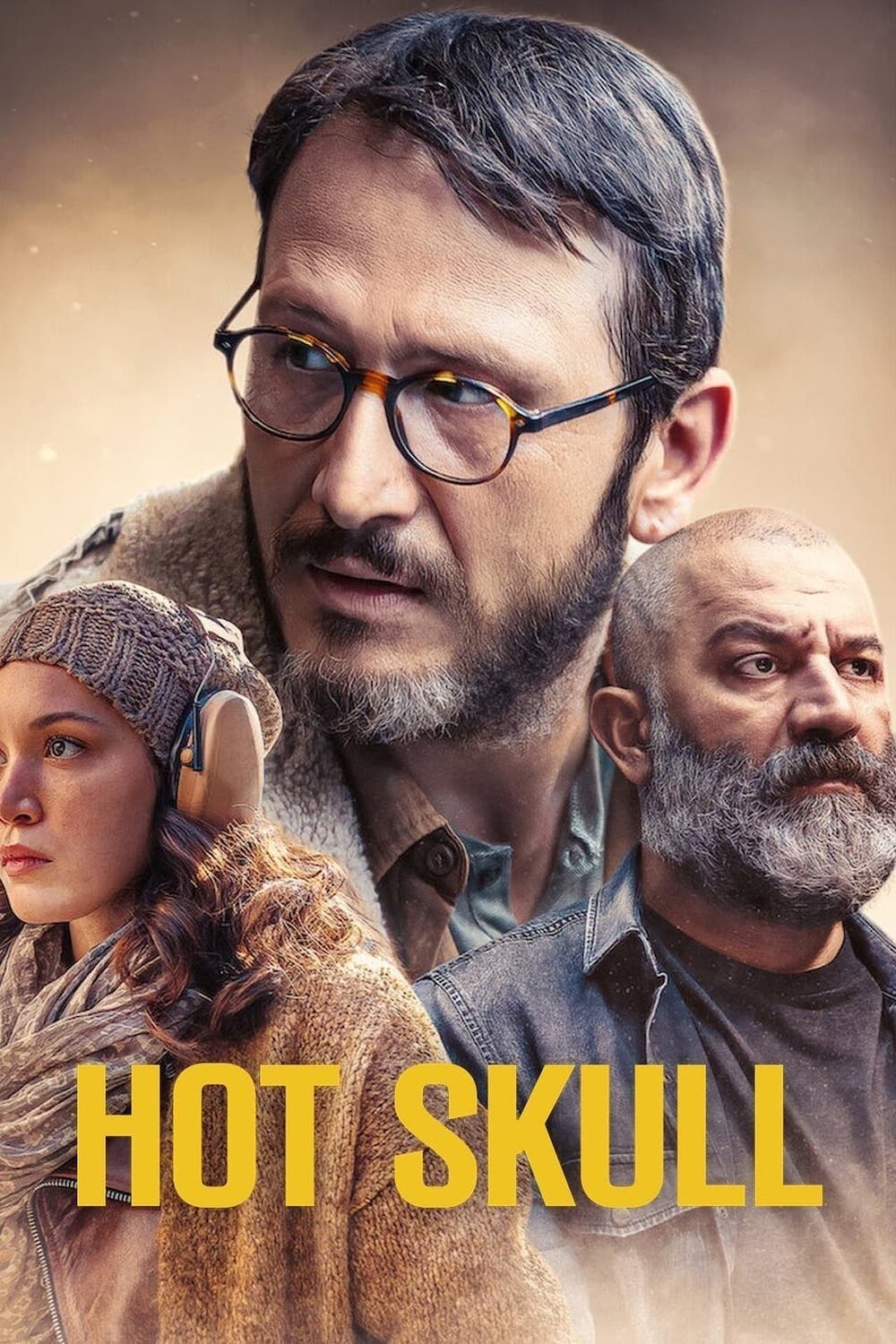
director: Mert Baykal & Umur Turagay.
writers: Mert Baykal, Zafer Külünk, Gokhan Seker, M. Ferhan Sensoy & Aylin Tinel (based on the novel ‘Sıcak Kafa’ by Afşin Kum).
starring: Osman Sonant, Sevket Çoruh, Hazal Subasi, Kubilay Tunçer & Özgür Emre Yildirim.

